|
LISTEN TO THIS THE AFRICANA VOICE ARTICLE NOW
Getting your Trinity Audio player ready...
|
On Friday afternoon, Kenya’s Health Cabinet Secretary (CS), Mutahi Kagwe, took to the podium and announced that Kenyans were no longer bound to wear face masks.
“There has been a lot of debate on facemasks. Wearing of facemasks in open places is now lifted,” he said.
“All Kenyans to continue to adhere to social measures, ensure frequent hand washing, sanitizing and exercise personal responsibility,” he added.
The news has attracted mixed reactions from across the country, with many people lauding the move. Social media networks such as Facebook and Twitter were abuzz with news of jubilation and even speculations behind the Covid-19 prevention measure, which, unfortunately, cost many a leg and a hand, and to some, death.
In the early days of the mask-wearing directive, many Kenyans were arrested for not wearing the mask and others for not wearing it properly. Police officers were accused of taking advantage of the mask directive to mint poor Kenyans dry in bribes, an allegation they laughed off. Some arrested for violating the mask-wearing mandate allege police forced them to part with a few thousand to secure freedom.
Health experts say that face masks have done a lot to prevent the spread of Covid-19, and some Kenyans agree. The mask directive brought a big business to entrepreneurial minds and provided a means of livelihood.
Dr. Irene Njeri, a consultant physician at Kiambu Hospital, opines that lifting masks in public areas will boost the country’s general immunity against coronavirus.
“Some hooligans in the name of fans have been causing chaos, abusing players and even match officials, and hiding behind masks. It’s not easy to identify somebody when they are wearing a face mask from the nose down to the chin. Now we shall better and decisively deal with such characters,”
— Football Kenya Federation (FKF) Nyamira County boss, James Mose said.
“I think this directive is aimed at increasing the country’s herd immunity, as we learn to live with Covid-19. However, you note that mandatory wearing of the masks in enclosed areas remains in place. It’s not that we are to completely do away with masks. They are still very important,” Dr. Njeri said.
Dr. Njeri said that since the masks were introduced, cases of diarrhea diseases in Kiambu Hospital have significantly gone down.
“At Kiambu Level 5, the cases plummeted by 60 percent. So you realize that masks, hand washing, and not shaking hands had a positive impact for diseases other than Covid-19,” she said.
She urged Kenyans to especially be “very careful” to wear face masks indoors to prevent themselves from Covid-19 and other infectious diseases.
“We are entering a period of heavy rains, and that means it will be cold generally,” Dr. Njeri said. “The danger with this is that most houses will be closed and therefore poor ventilation. In such circumstances, viral diseases spread fastest. To be safer, put on your face mask.”
Jedidah Moraa, a medical student on an internship in Kisumu, is afraid of the new directive.
“I do ward rounds, and the truth is Covid-19 is alive and well. I have seen patients struggle with breathing, and some end up dying, thanks to coronavirus. In fact, to keep safe, I am always on two masks,” Moraa said.
Kenya has reported over 300,000 cases of Covid-19 since March 2020. Over 5 000 deaths have been reported in the same period.
Moraa says that as of Saturday, a day after the directive, most church congregants were mask-free that she conspicuously stood out for masking up.
Calvin Omondi, a bartender in one of the taverns in Nyamira, says he was not surprised by the CS’ directive.
“For so long, revelers coming here haven’t been wearing masks, and no one cares. I stopped wearing those things long ago. By the way, even the police stopped chasing people around to scare them into masking up,” Omondi said.
“Last week alone, I sold several packets of masks to students and parents when schools were closing. On normal days I manage to sell many face masks to hawkers and other buyers. I see a bleak future in this business because I don’t think people will keep on buying masks. I have to find another business to do now,” mask seller Verna Kwamboka said.
Elsewhere in Nairobi, Kemunto Nyakundi, a businesswoman, said she had benefited from wearing face masks.
“I am asthmatic, and I have allergies. Before the masks came, I used to use about two handkerchiefs. I was so susceptible to the flu and things such as dust perfume affected me a lot. But when I started wearing masks, I stopped using hankies as frequently as I did before. The masks filter the dust, strong winds when I’m on a motorcycle, and I can stand perfumes,” Nyakundi said.
She said she would keep wearing the masks for her health’s sake, whether in public or private. However, she was skeptical about the Covid-19 vaccination.
“I’m not vaccinated yet, but I know Covid-19 is there. I observe all those directives, but I am hesitant to get a Covid-19 vaccine because I am a breastfeeding mother, and I don’t know what aftereffects vaccines may bring upon my child,” Nyakundi said.
The World Health Organization (WHO) recommends the Covid-19 vaccination even for breastfeeding mothers.
“WHO recommends that mothers with suspected or confirmed COVID-19 should be encouraged to initiate or continue to breastfeed. Mothers should be counseled that the benefits of breastfeeding substantially outweigh the potential risks for transmission,” WHO said in a statement posted on its website.
The Football Kenya Federation (FKF) Nyamira County boss, James Mose, said the lifting of mandatory wearing of masks is a big win for football.
“Some hooligans in the name of fans have been causing chaos, abusing players and even match officials, and hiding behind masks. It’s not easy to identify somebody when they are wearing a face mask from the nose down to the chin. Now we shall better and decisively deal with such characters,” Mose said.
Besides lifting the masking directive, the minister allowed full stadium capacity fans attendance in games. That’s a new lease of life to football clubs whose fortunes were dwindling because only a few fans could attend their matches. Some clubs bank on selling match tickets to fans to strengthen their financial muscle,” Mose added.
For Verna Kwamboka, a seller of masks in Kisii, the masks directive is a fatal blow to her business, which has been her Midas touch since 2020.
“Last week alone, I sold several packets of masks to students and parents when schools were closing. On normal days I manage to sell many face masks to hawkers and other buyers. I see a bleak future in this business because I don’t think people will keep on buying masks. I have to find another business to do now,” Kwamboka said.
Click here to watch Cabinet Secretary Mutahi Kagwe’s announcement on Citizen TV YouTube page.
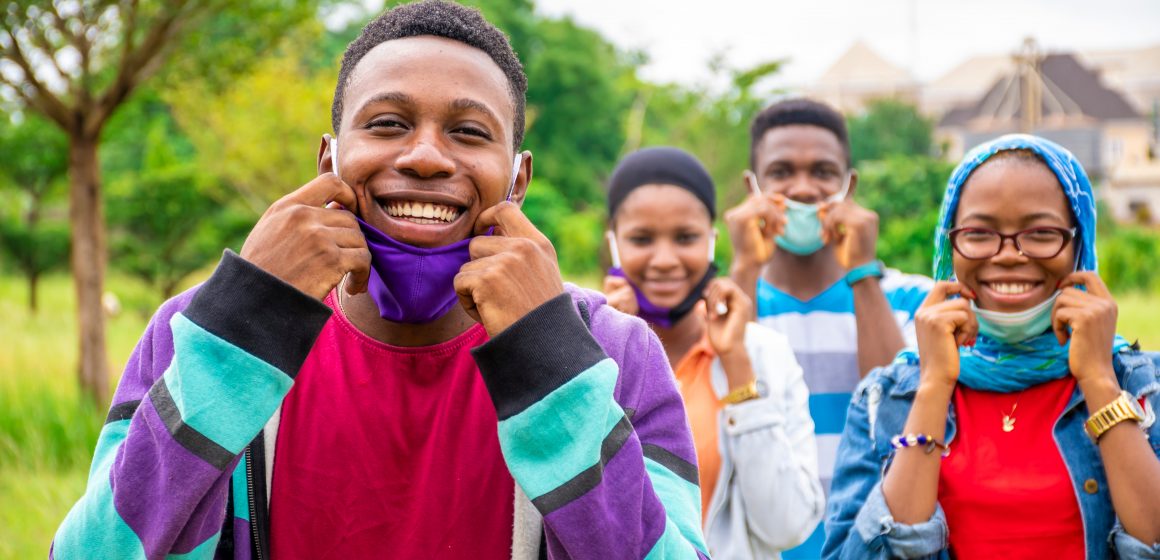
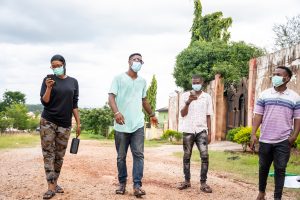



















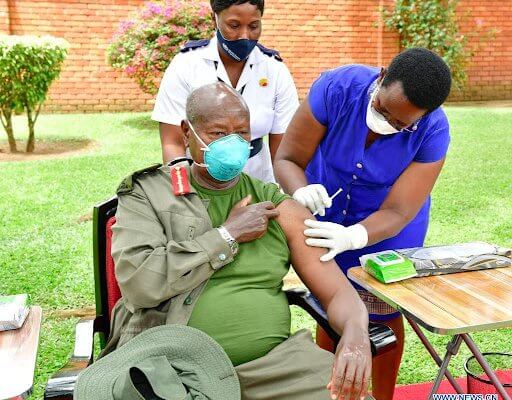



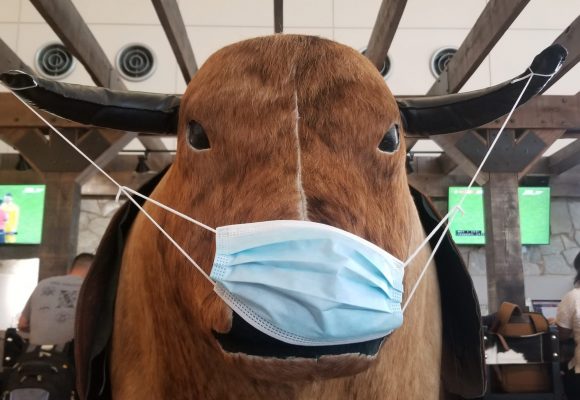
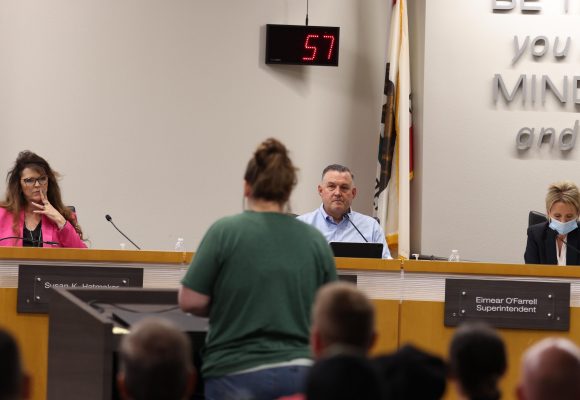

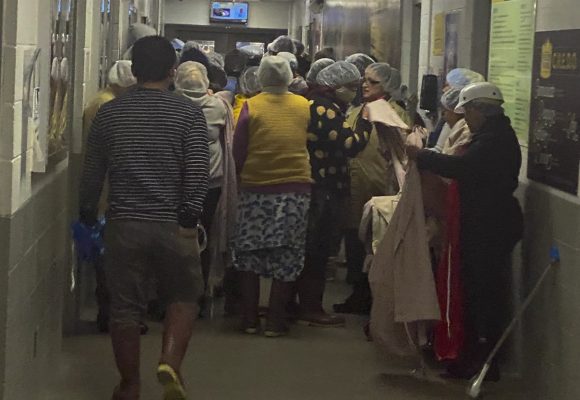
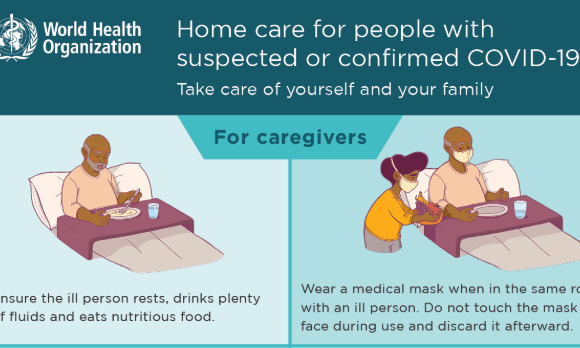
LEAVE A COMMENT
You must be logged in to post a comment.